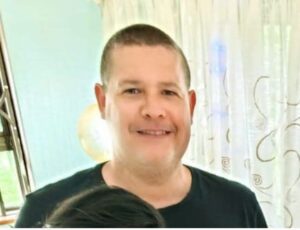Information reaching Kossyderrickent has it that Jonathan Majors flaunts six-packs in Men’s Health photoshoot. (Read More Here).
On set, it’s the same story. Hand him fake weights for a scene and he’ll look at you with incredulity and tell you in the politest, sincerest tone, “You’re fucking kidding me,” as he did while playing two of the most physically demanding roles of his career: a rough-edged boxer in the latest installment of the Rocky Cinematic Universe, Creed III, and an asocial bodybuilder in the dark drama Magazine Dreams. For both upcoming projects, Majors lifted real weights during filming.
“I will do this all day. We are not putting fake weights on. I haven’t been training for the past three months to get here and use Styrofoam,” Majors says on a hot and sunny day in London. “Put these fucking weights on so we can lift it, so you can shoot it, so I can tell the story.” Respectfully, anything less is “like putting fake tears in your eyes. Or putting fake sweat on you. This is it. This is it! Let’s go.” He laughs.
Majors stands out in a world short on new, exciting movie stars. His portfolio is like a capsule collection of art films, including his 2019 breakout, The Last Black Man in San Francisco; historical adventure stories and westerns (Spike Lee’s Da 5 Bloods, the ensemble pic The Harder They Fall); and HBO’s Black horror series Lovecraft Country, for which he was Emmy nominated. He not only savors a challenge but seeks it out. “When I look at a script, I look at the level of difficulty,” he says. “If it’s going to be easy, I don’t want to do it. The fitness community is going to scrutinize Magazine Dreams. The Navy is going to scrutinize Devotion.”
Majors has proved himself as a multifaceted leading man, and he’s about to level up with consecutive roles that combine his physical and mental strengths. He’s shepherding Marvel through a crucial phase as the next big villain while pursuing indie projects, dealing with great expectations while still making savvy art. More than pulling off his own stunts, which he does, he’s concerned with convincing the audience that his characters are real. “People have been following this character for two hours sometimes. I’ve been trying so hard to tell the truth, which is not easy,” he says. “A part of you will know. That’s Kang, but that’s not my Kang. That’s Kang adjacent. That’s a stunt guy. In The Harder They Fall, I ride a horse in a very particular way. You put a stunty on that, and they go, ‘He don’t got the swag. His head ain’t bopping.’ You should never once think it’s not him. You know it’s him. So you trust in him.”
MAJORS HAS BEEN in Jordan-esque attack mode since he was 17, when his high school coaches put him on the B team. “Basketball, football—I was a B teamer,” he says.
“I was like, ‘You got me fucked up.’ No disrespect to the B team, but I felt like I’m better than that guy. I’m faster than that guy.” Majors was a churchgoing kid who grew up in Cedar Hill, a Dallas suburb, with his mother; his older sister, Monica; and his younger brother, Cameron. He was nine when their father left.
He attended school with the children of Dallas Cowboys players and developed a habit of taking things personally. Over the summer, you’d find him running to and from practice in his B-team jersey.
“You couldn’t outrun me. You wouldn’t outlift me. I was determined [not to feel] less than,” he says. “Then I transcended to where I am now: Fuck everybody. Fuck everything. The coaches and the teachers were giving me the layout of what success looked like, and they said I wasn’t that. So then I began to work hard to be that. . . . I was dealing with my daddy issues and also moving into adulthood.” Majors was constantly being kicked out of school for fights but later discovered reading and acting as a distraction from rebellion. His family gifted him a viewfinder his grandfather had brought back from his time in the military in Germany, along with books like The Three Musketeers and The Canterbury Tales. In time, Majors sanded away at his edges but kept the chip.
Majors notes that part of the challenge with physical acting is quieting your body’s natural reflexes. Sometimes he can’t just let them go. “When you express that much discomfort, rage, or loss, that is a physical reaction. Your body doesn’t say ‘Cut!’ and you’re over it,” he explains. “You can’t turn it off, because it’s not acting.” The opposite instinct is turning it on. In the middle of a brutal take or workout session, he asks himself, “Am I dying?” And when a voice inside screams, “No!” he pushes. “It could be The Last Black Man in San Francisco, and it’s like, Go! My emotions are a muscle. I say, ‘All right, fire them motherfuckers up!’ You’ll hear me hollering. I scream on set like a quarterback. Oh-maha! Oh-maha! It’s a thing.” Stephen Broussard, an executive producer on Loki and a producer on Ant-Man and the Wasp: Quantumania, recalls how Majors had “an insane work ethic” and would show up early on set every day wearing his Kang outfit, then jog around the soundstage with his portable speaker.
Discover more from KossyDerrickent
Subscribe to get the latest posts sent to your email.







